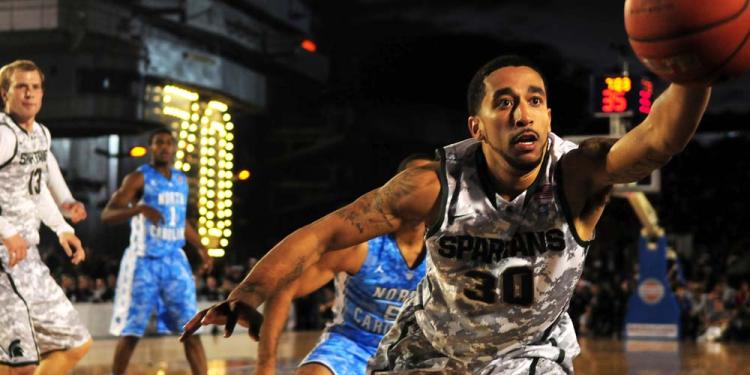Tonight’s the Night – for Illegal Sports Betting in the US
Posted: April 8, 2013
Updated: December 1, 2018
Federal ban on countrywide sports betting can not last forever.

There’s something huge going on, connecting Kentucky, Michigan, Georgia and the rest of the US tonight. No, it’s not the fact that the Louisville Cardinals are facing the Michigan Wolverines in the NCAA finals at the Georgia Dome in Atlanta.
Ok, it’s that, too. But it is also the fact that these states belong to the vast majority whereby it is illegal to bet on sports in United States.
As most people know, American gambling laws allow bookies to take bets only in four states: Nevada, Delaware, Oregon and Montana. In fact, betting one the championship games exceeded USD 200 million in Nevada alone, which is precisely a hundred million more than what was bet on that other national pastime, the Super Bowl.
That seems like a large amount, until one considers the FBI’s estimate that 13 times that much (USD 2.6 billion) was wagered in circumvention of legal sportsbooks. That is huge business, and a significant part consists of traditional office pools and barroom bets. Of course there are also offshore betting sites and other means, which make the legal sports wagering revenues look like peanuts.
Although the NCAA and other sports associations are dead set against further states opening the way before legal betting, warning against the corrupting influence of gambling on sports, these caveats sound rather hollow when the above figures are taken into account.
With online and mobile betting options there is simply no way to effectively prevent punters from wagering, and the bans only drive business to other jurisdictions. And the money to be had in this illegal industry is mind-blowingly large: USD 380 billion a year. That’s about 12,000 greenbacks every single second, minute after minute, hour after hour.
Looking at the trends towards casino expansions and online gambling legalization efforts by cash-strapped states, it is clear that sports betting legalization will be propagated by many as the next frontier to conquer.
Although there is an explicit federal ban on sports betting outside those four specified states, the challenge mounted by New Jersey could see radical changes taking place. Should the Supreme Court eventually uphold the state’s decision to legalize sports betting, this would give an impetus to other states to make similar moves.
Related content
Subscribe
0 Comments












